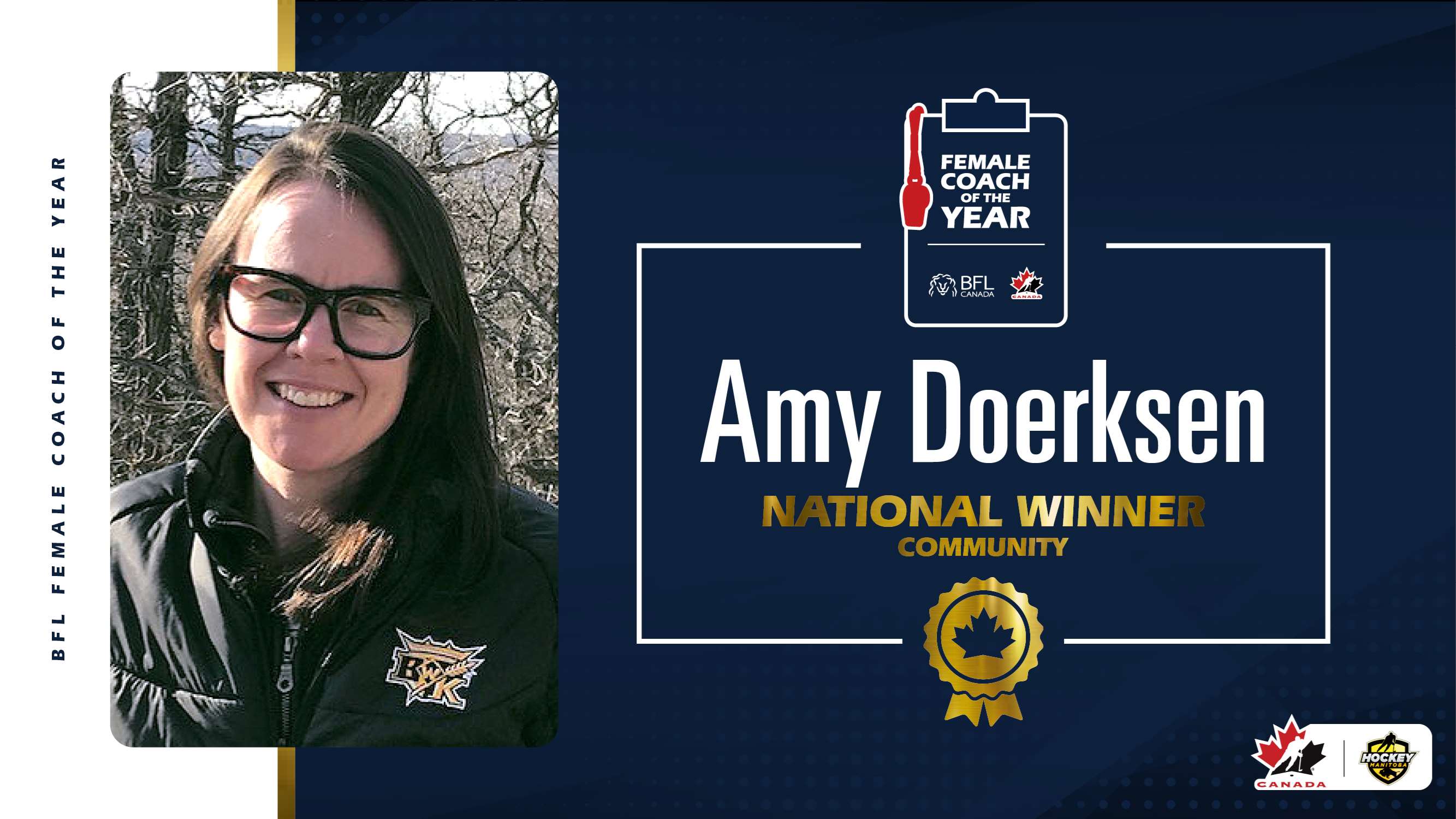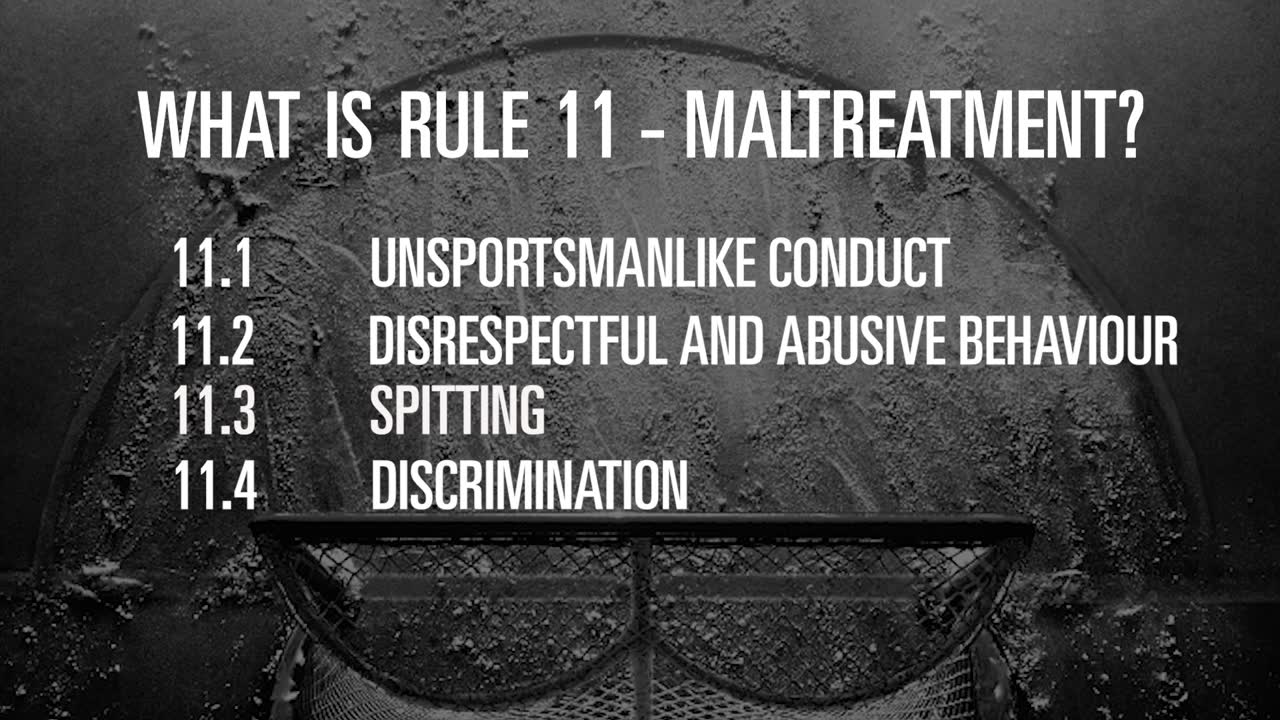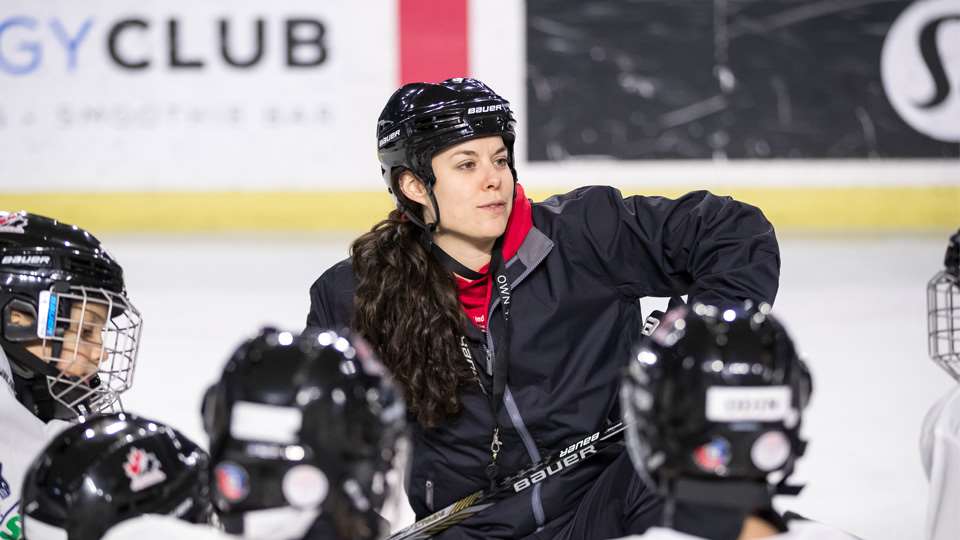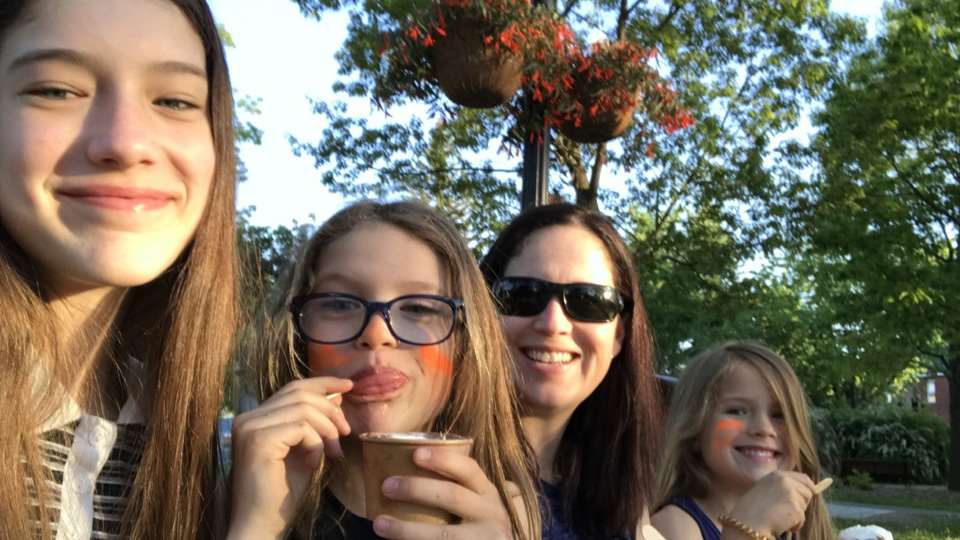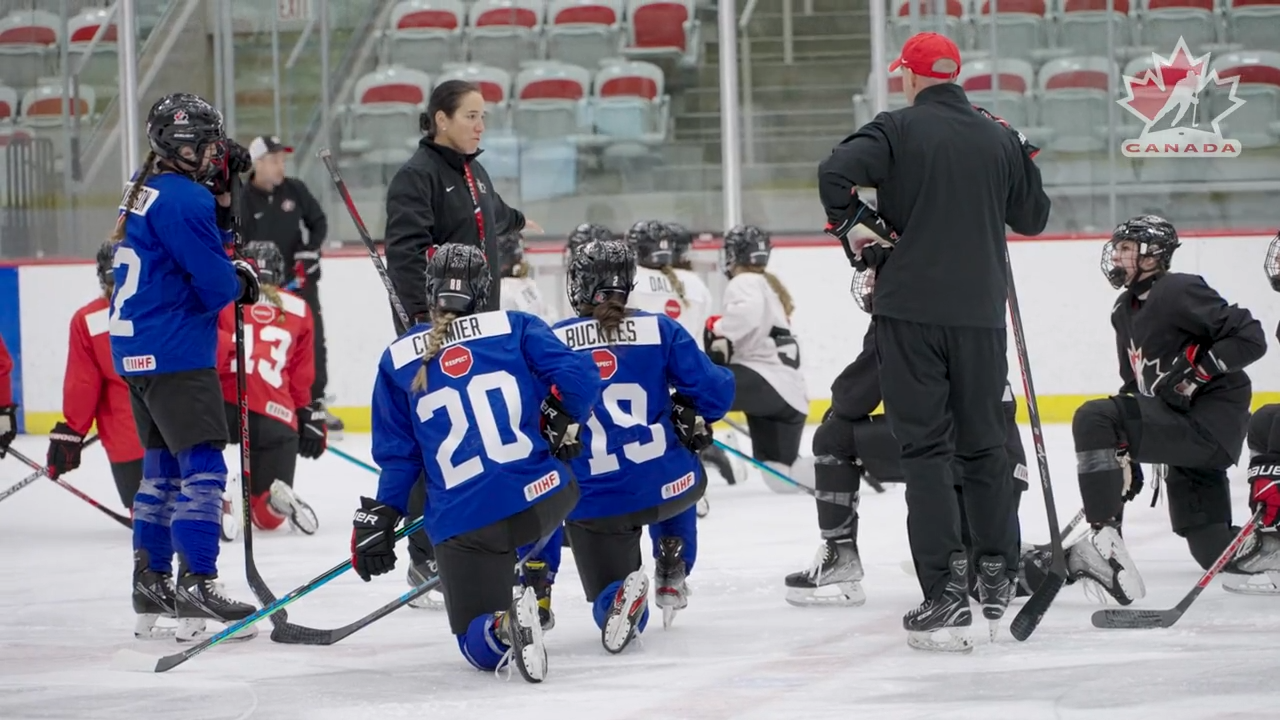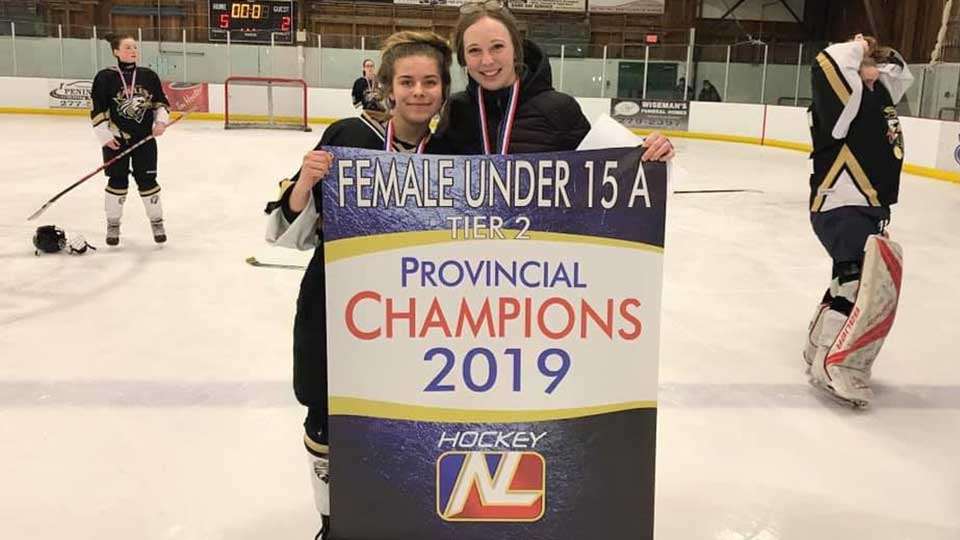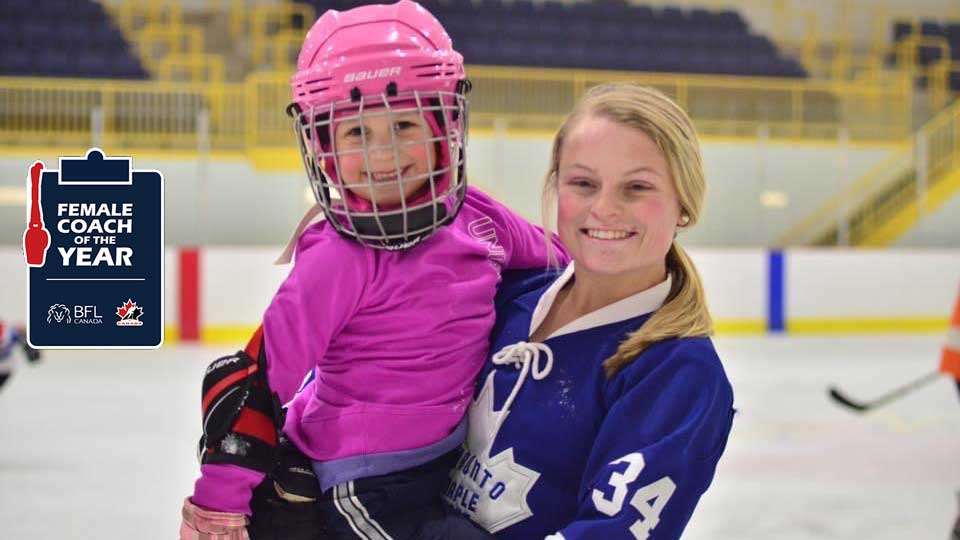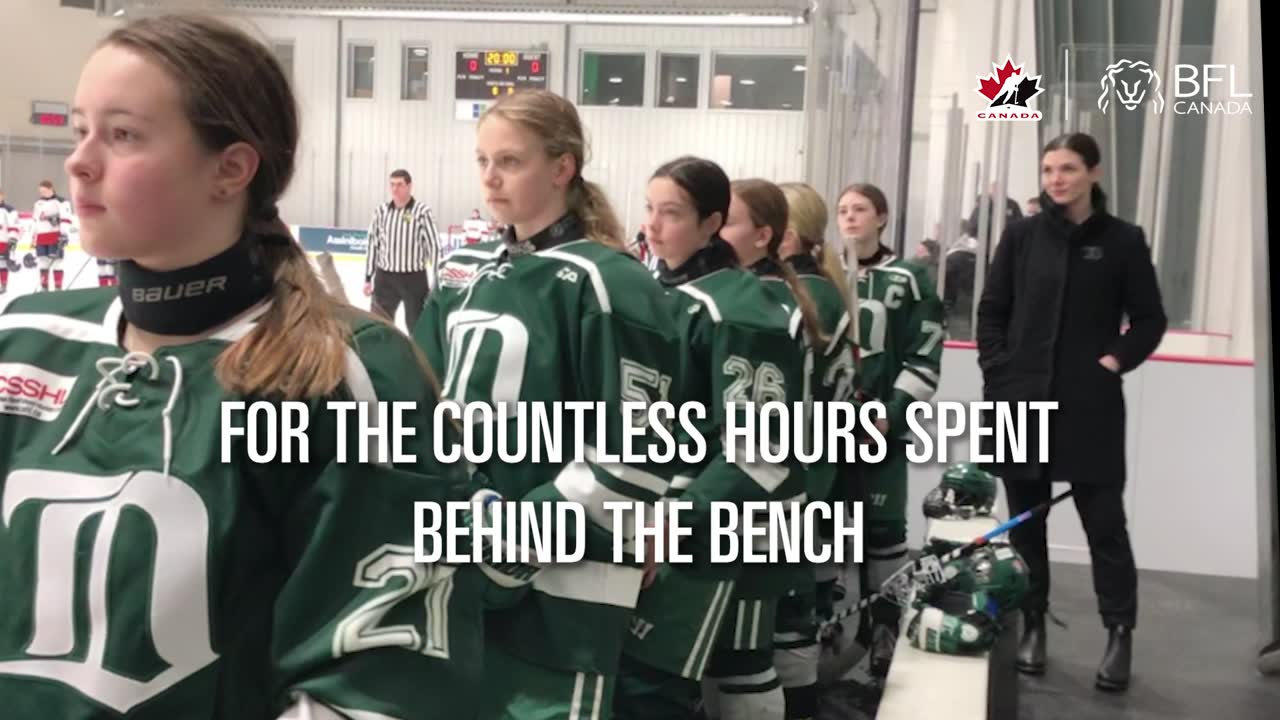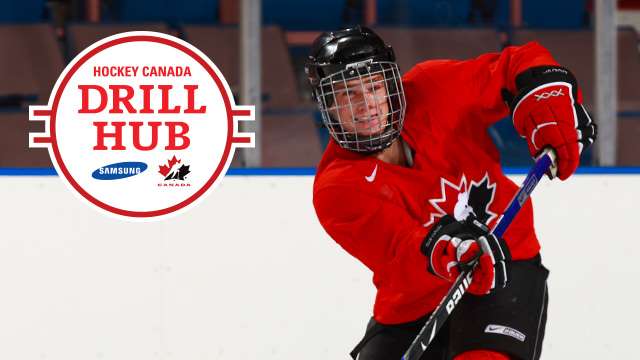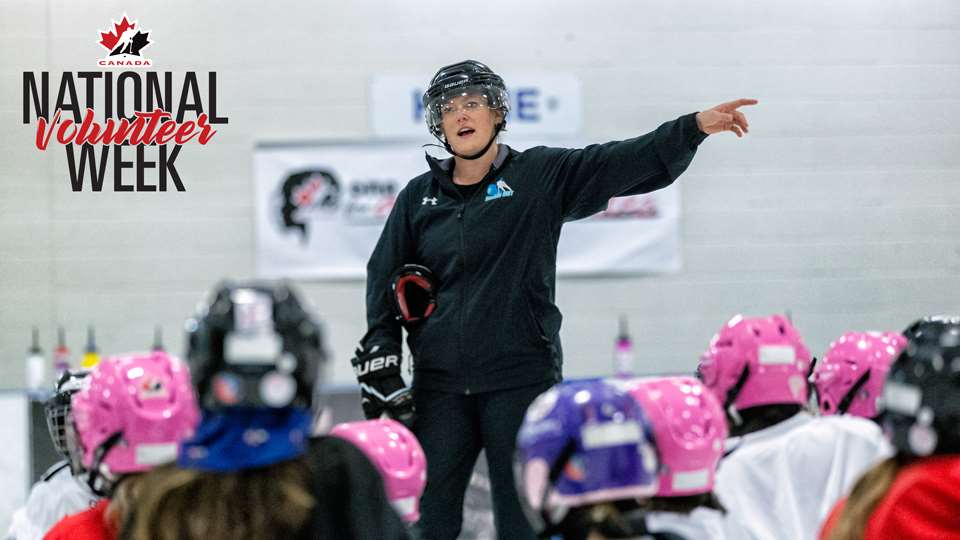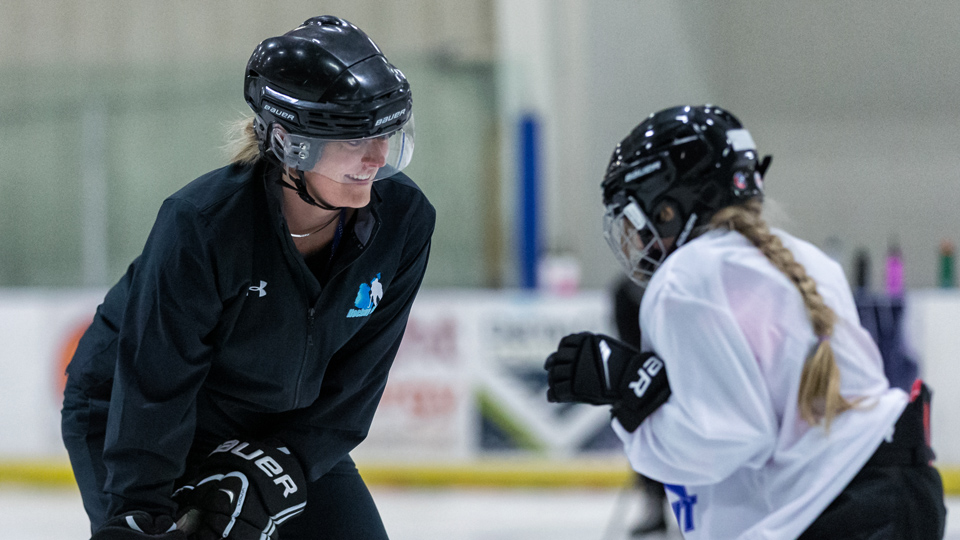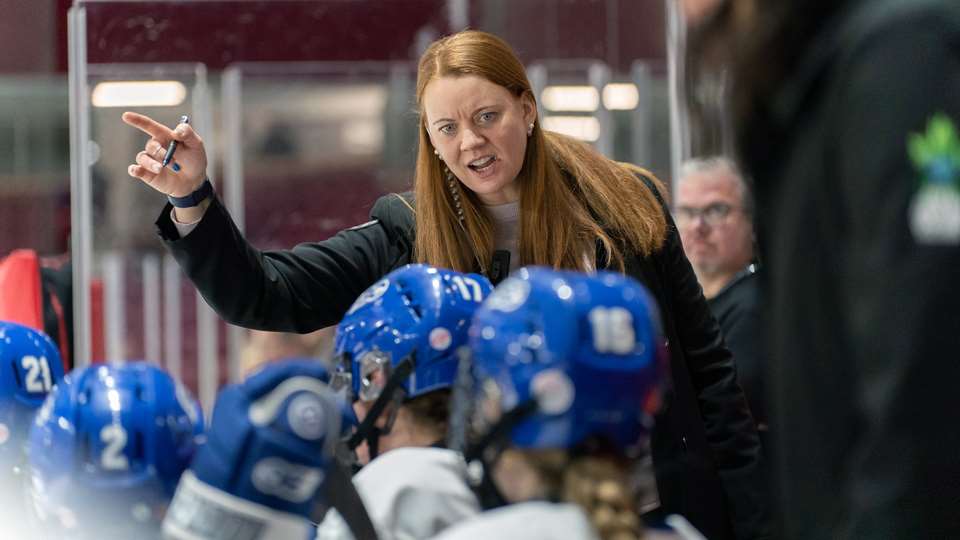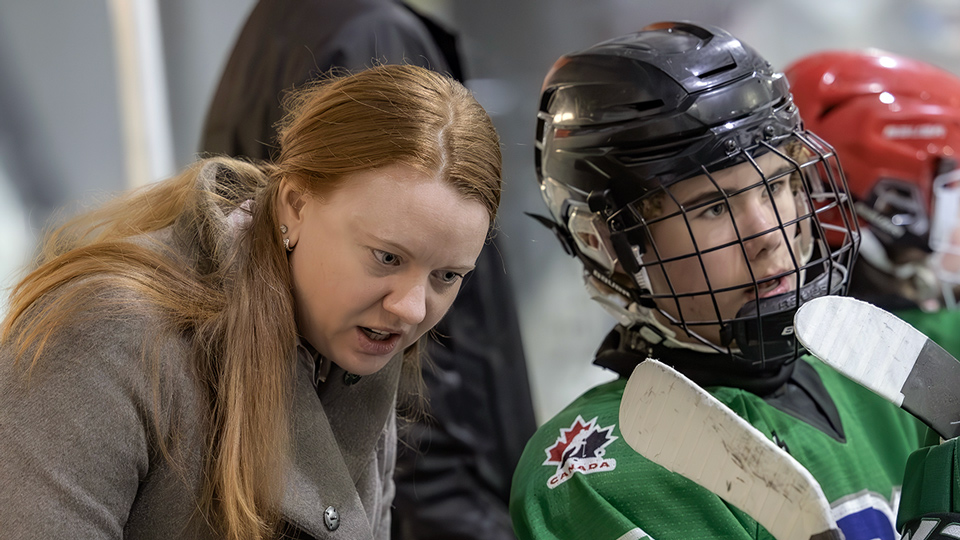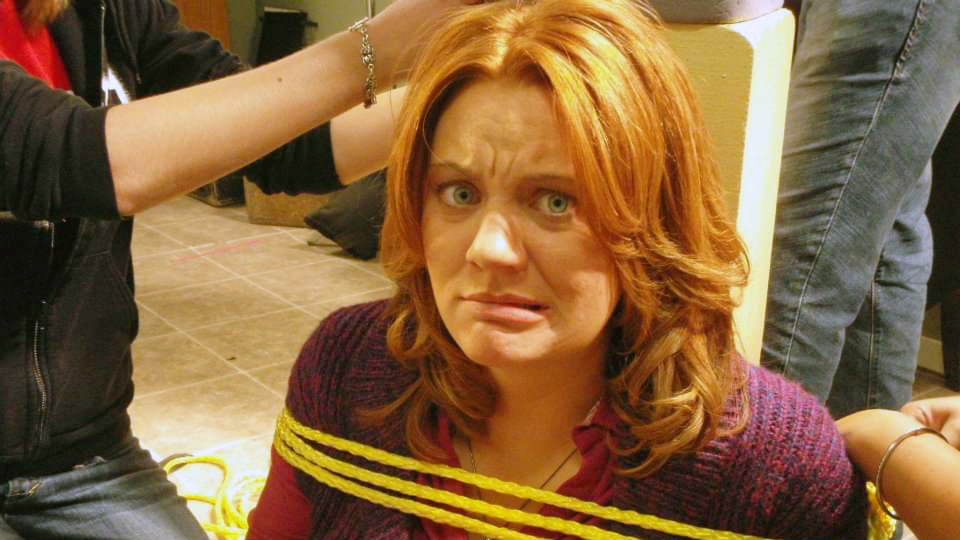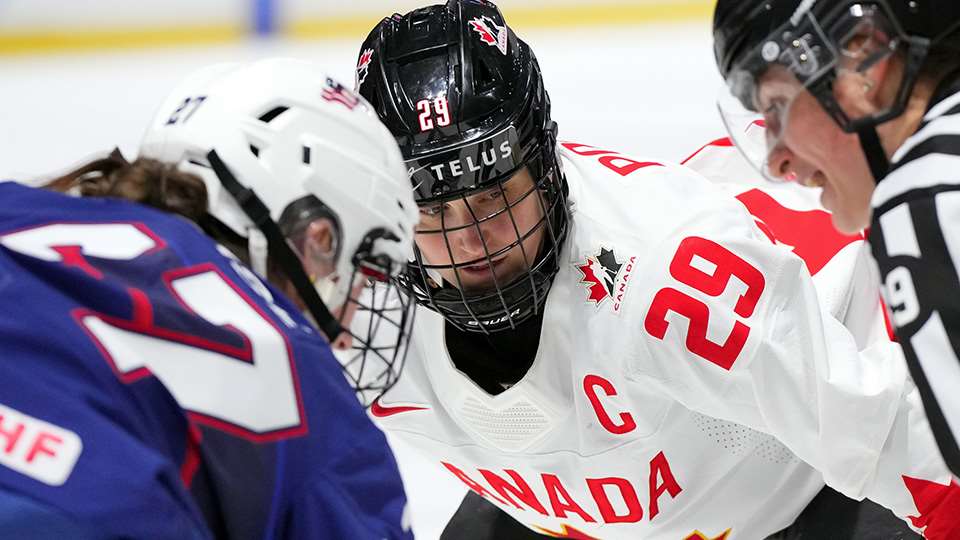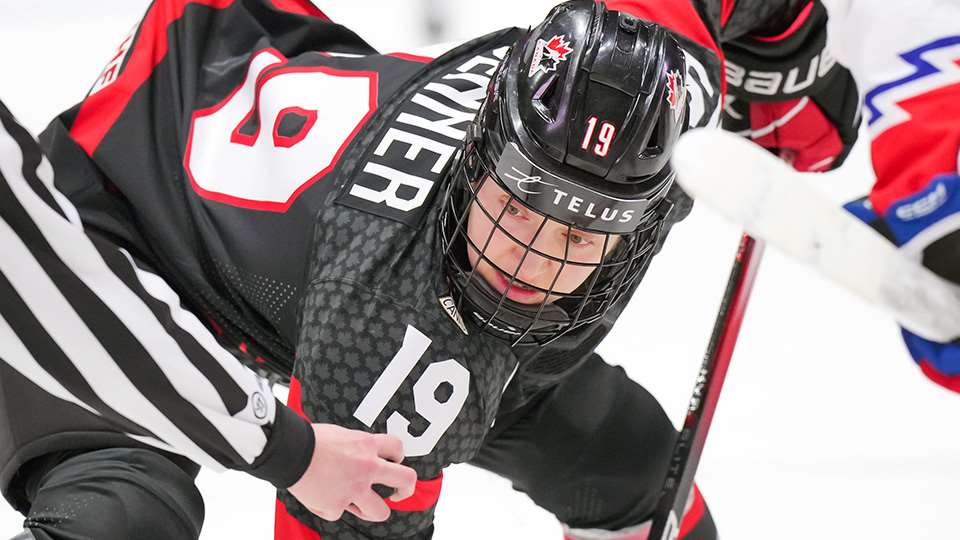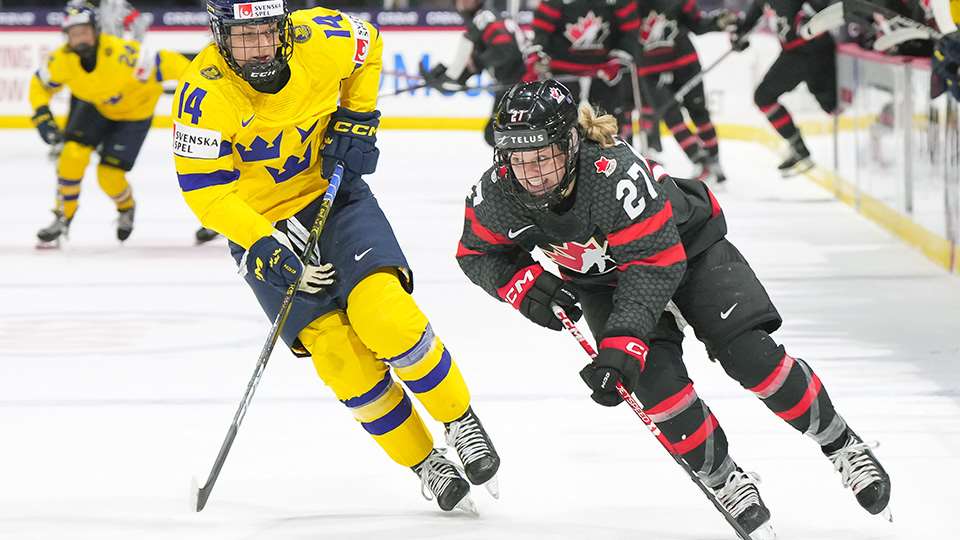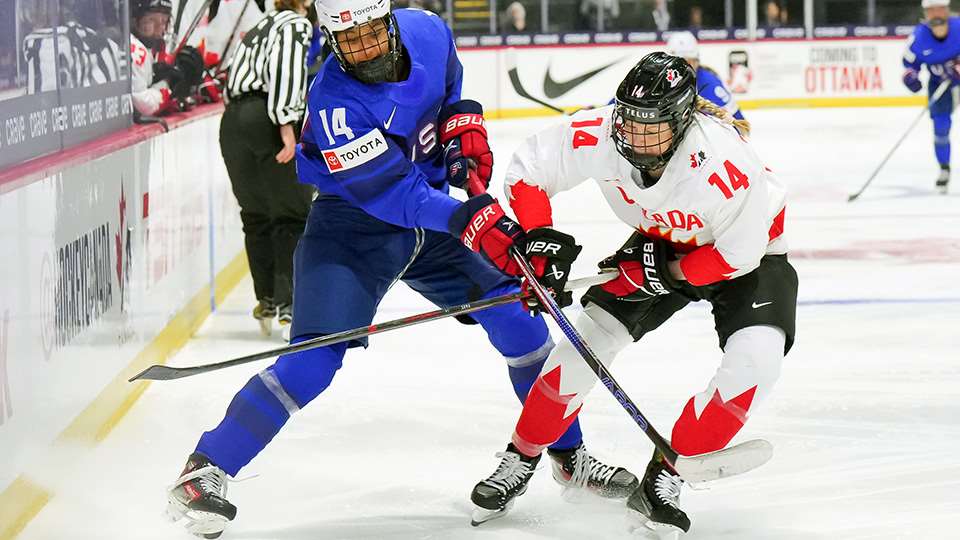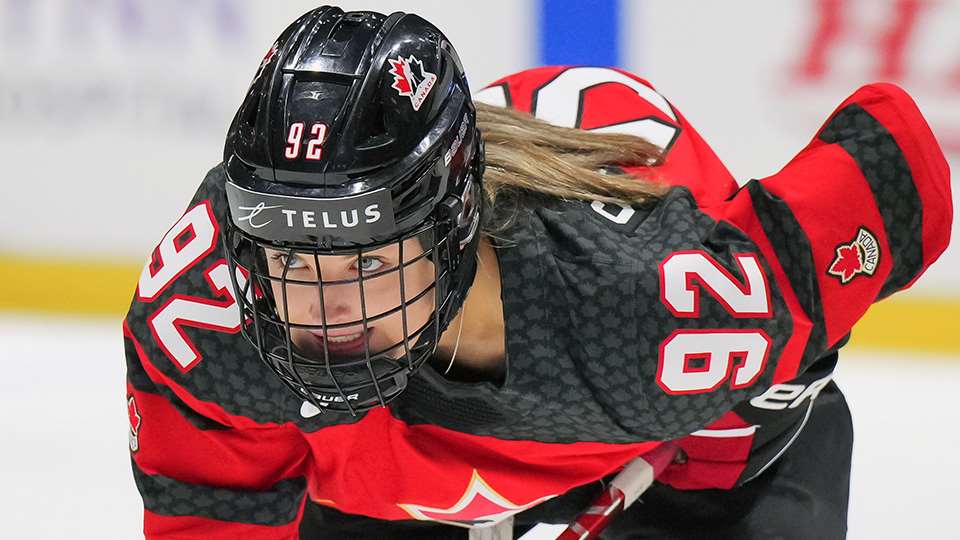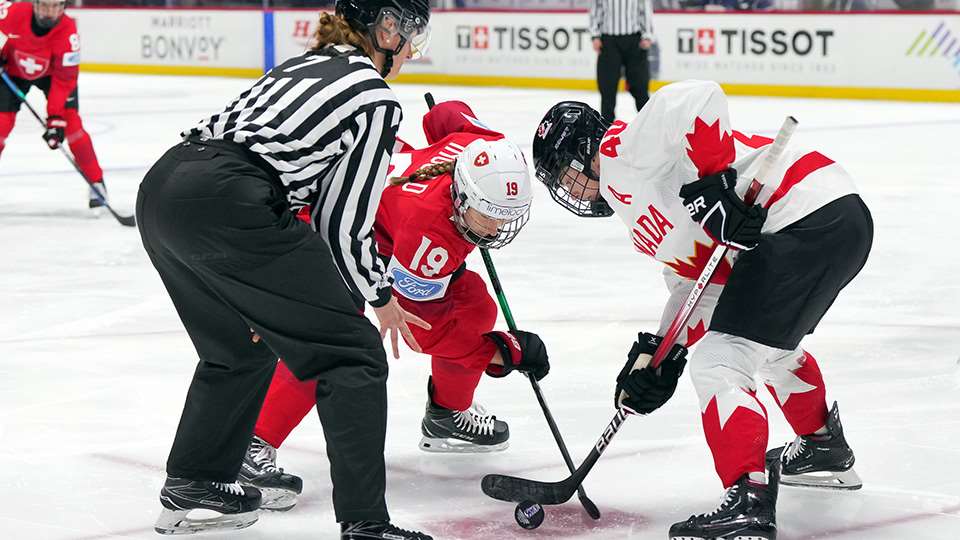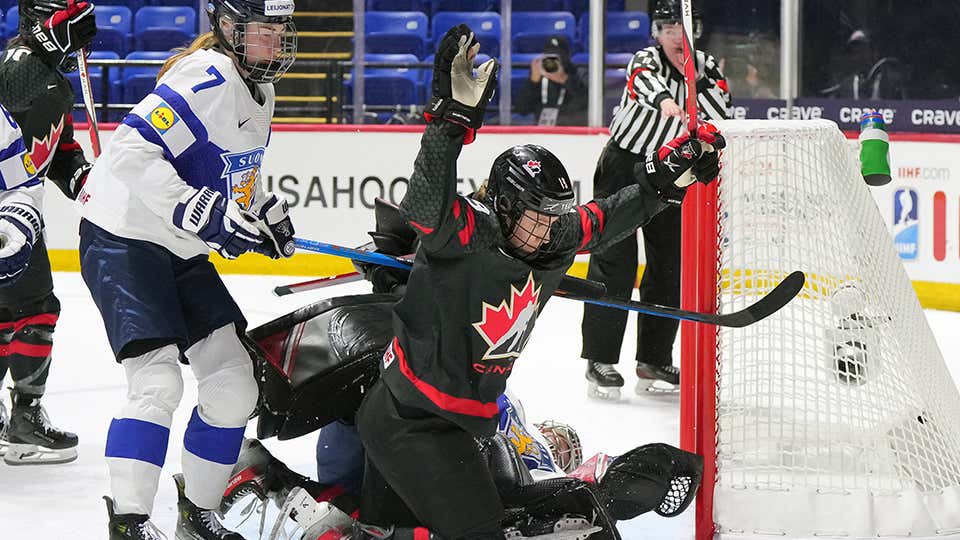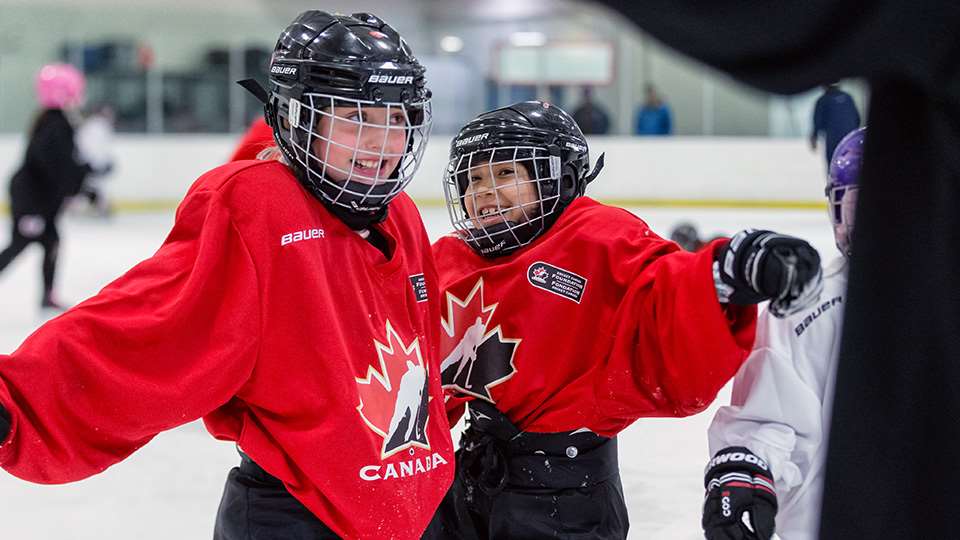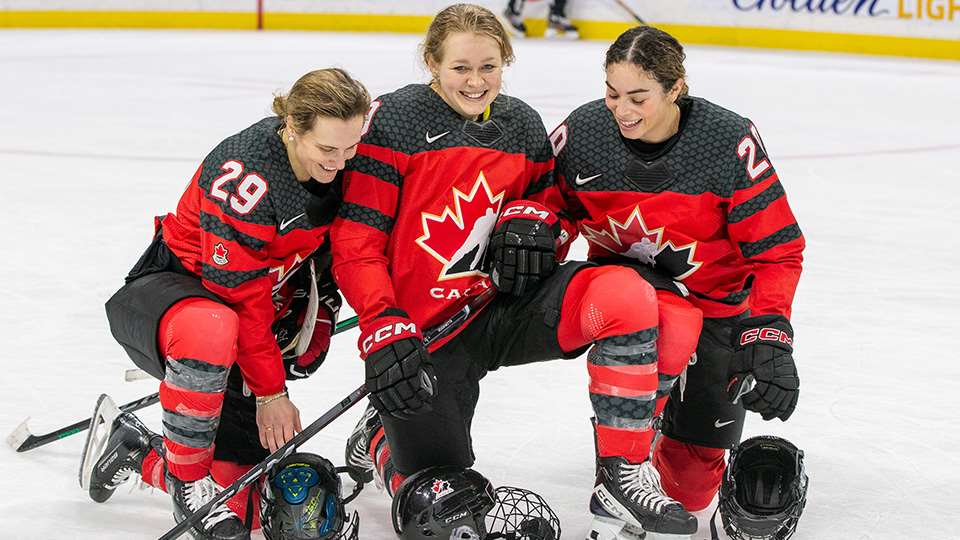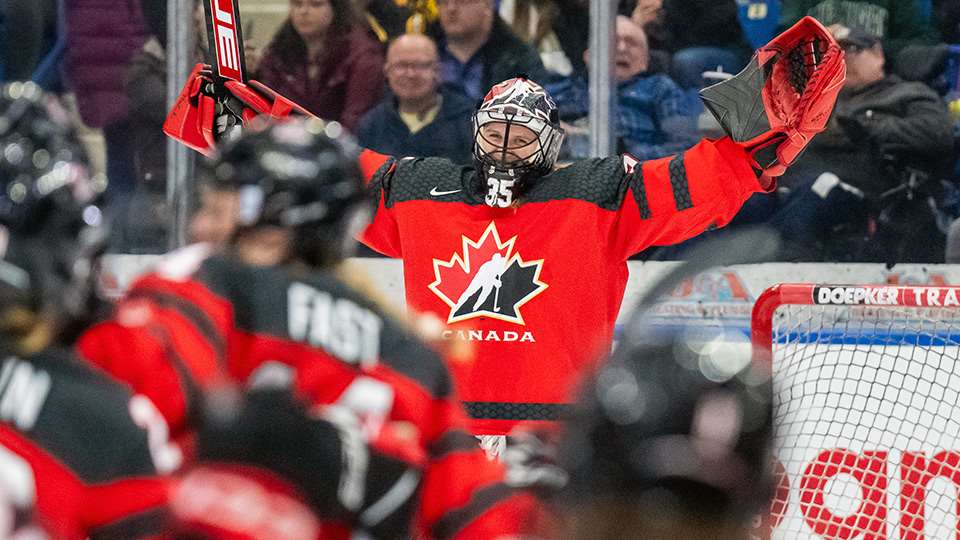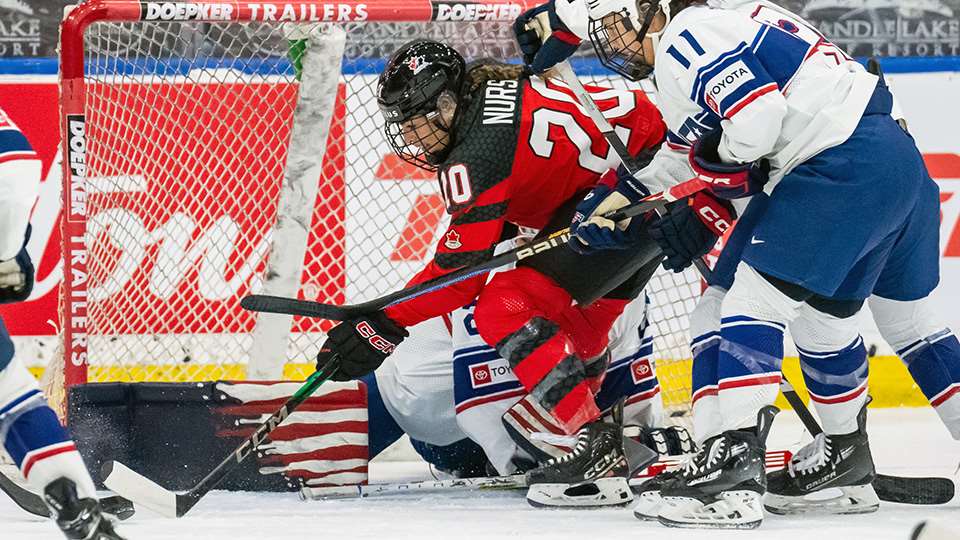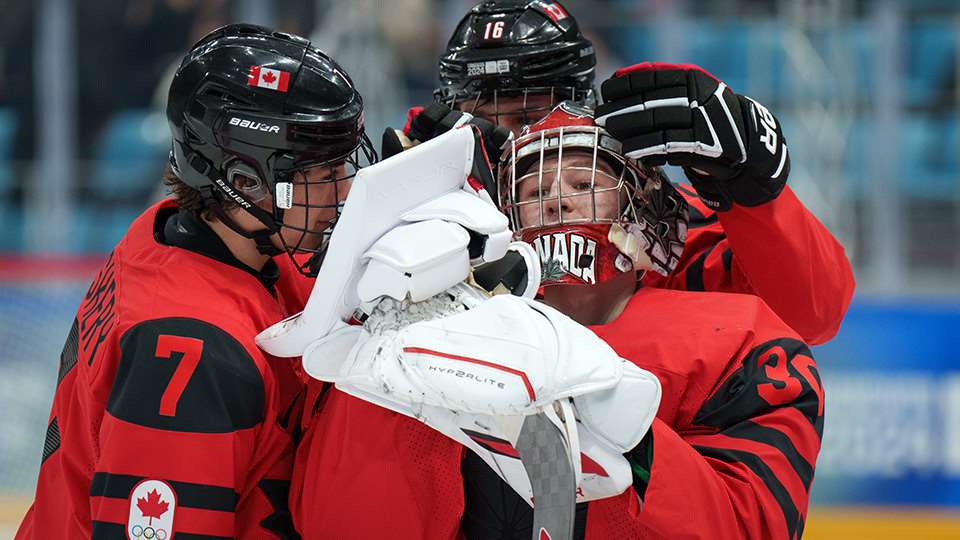
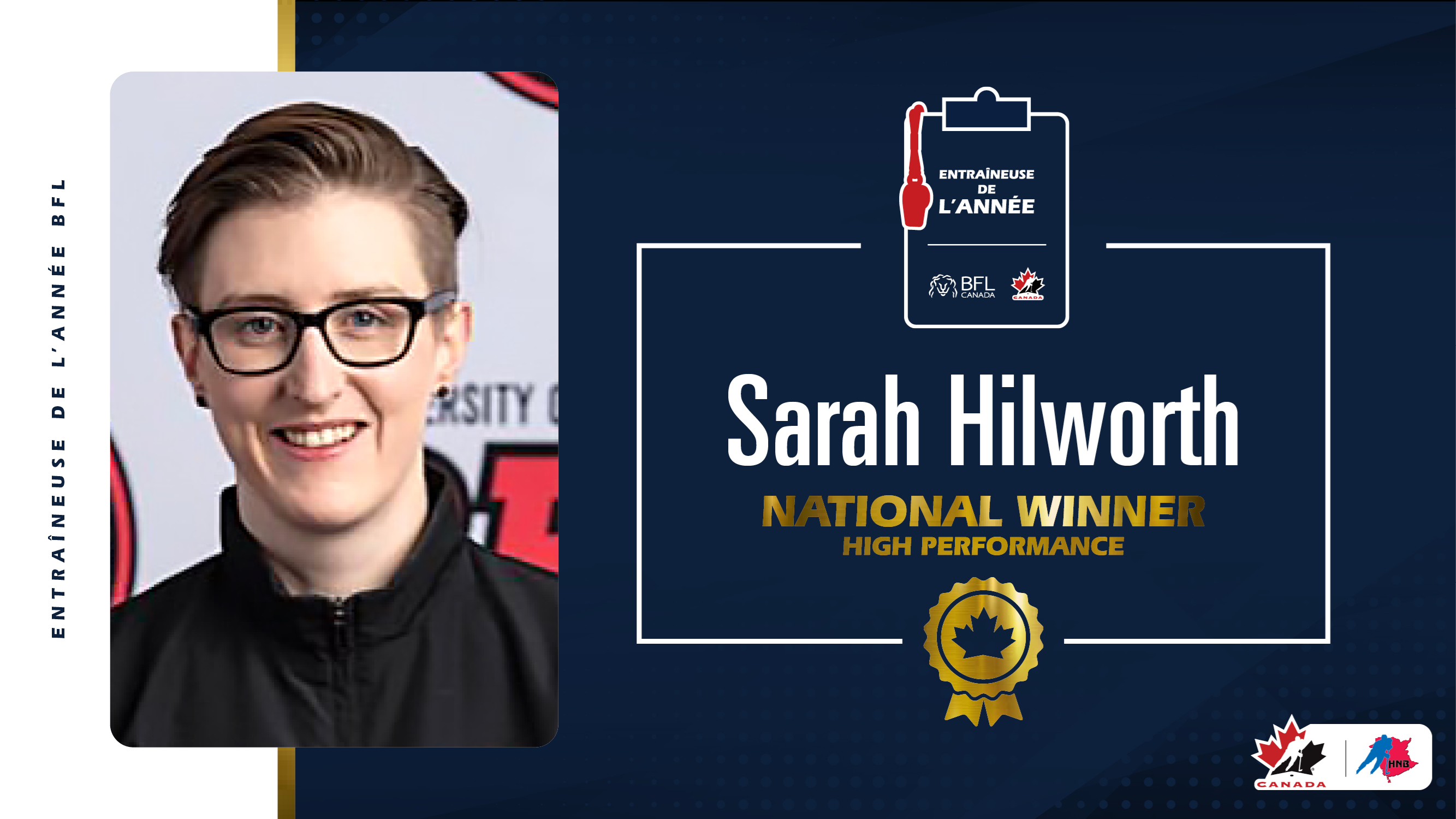
Finding her place in the game
The national winner of the 2022 BFL Female Coach of the Year (High Performance), Sarah Hilworth bounced back quickly from a devastating injury to carve out a career behind the bench

That’s Sarah Hilworth.
One of the top coaches in Canadian university hockey, Hilworth led the University of New Brunswick (UNB) women’s team to the Atlantic University Sport (AUS) championship in 2021-22, less than five years after UNB’s women’s hockey program was reinstated into AUS.
For her work, Hilworth was named the national winner of the 2022 BFL Female Coach of the Year Award in the High Performance category. The honour comes on the heels of Hilworth being named AUS Coach of the Year.
“I was floored, I couldn’t even believe it,” the Vancouver native says of the BFL CANADA award. “I was honoured just to be nominated and when they told me I was the recipient … it’s hard to accept something where I know there are so many people involved that, truly, this goes out to them.
“It’s nice to represent something that we have created here in Fredericton that is so special to me and so many people. I’m very proud of everything that our organization has done. I don’t think that I can take full credit because there are so many people who have helped me get to where we are.”
Hockey fans will know the Hilworth name from her playing days. She was a top contributor with the University of Alberta during her five years playing for that program, registering 100 points in her 100-game career. The decorated career came to an abrupt end during Hilworth’s fifth season when she blocked a shot, the puck shattering her knee cap.
There’s no doubt Hilworth was disappointed, as the elite athlete had contracts lined up with plans to head to Europe to play professionally. But she didn’t have too much time to dwell on that as the coaching bug took over.
The transition from player to coach was a pretty natural one, given Hilworth’s passion and knowledge of the game.
“To think back, that kid from inner-city Vancouver, growing up and adoring the sport … I look back and I was always an athlete but I always think I was a coach first. I was the only person in my class playing hockey and only girl playing sports,” says Hilworth. “I remember getting in trouble from my teachers in Grade 3 because I would be drawing up drills in my book and doing up little sign-up sheets and I would be teaching the girls in my class how to play basketball or soccer or any kind of sport. I needed people to play with and I would have these little clinics set up. That’s kind of how my mind was when I was little. It just translated into high school and I started helping coach teams there too.
“I just love it. I love helping people and seeing people enjoy being athletic, whether it’s hockey, baseball, soccer or whatever. The power of sport is pretty incredible.”
She credits Howie Draper for her move into the university coaching ranks. Draper, the long-time University of Alberta head coach who recently led Canada’s National Women’s Under-18 Team to gold at the 2022 IIHF U18 Women’s World Championship, was Hilworth’s head coach from 2008-13.
Hilworth jokes that Draper may have felt bad for her but, in reality, Draper could see the passion and knowledge Hilworth had. He offered her a chance to be an assistant coach on his staff, a role Hilworth held for two seasons before taking a head coaching position at Olds College in Alberta. Hilworth left Olds after two seasons for the opportunity to lead the UNB program.
Today, Hilworth says she’s living the dream. Hockey has given her the opportunity to see the country and the world, has been the reason she went from one coast to another and is pretty much the reason for every aspect of her life.
“It’s given me everything. I’ve never not been an athlete. I’ve never not loved the game,” she says. “It’s something that has given me discipline, taught me hard work, given me goals; some of the best times of my life, some of the worst times of my life. It’s given me my family, my friends. The people that I’ve met along the way are some of the most incredible people. My student-athletes, they’re all family to me. There are so many personal things the game has taught me but the family and people that I’ve met along the way are the people I love and enjoy and I’m so grateful and truly … I’m so blessed.”
Hilworth is thrilled at the investment that UNB has made into its women’s hockey program. She thinks the state of the game is at an all-time high and points to the incredible talent displayed during the recent U18 women’s worlds. Ever the advocate, though, Hilworth says there’s more to be done.
“I would like to see more women in our game. There are a lot of incredible women in our game already and coaching, and a lot of them that I look up to,” she says. “We need to continue to see that investment made into women coaching women. I want to see more equality in terms of how ice is being allocated in female programs versus male programs and how communities are rallying behind their young female hockey players. That’s still something that is missing in our game.”
For more information: |
- <
- >


















